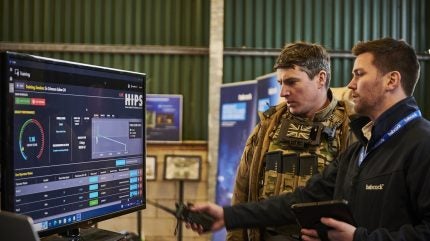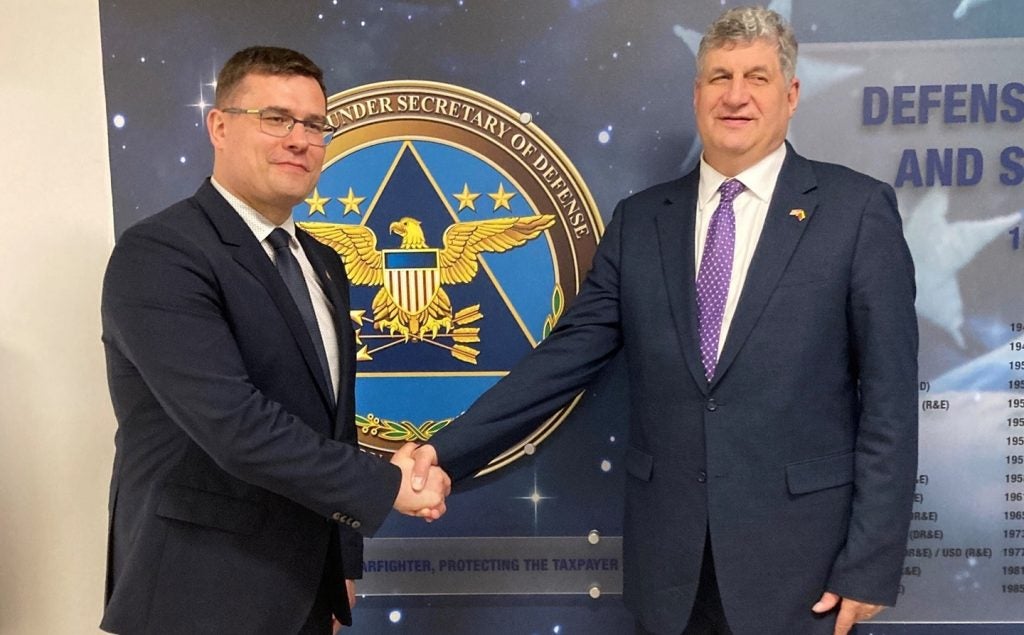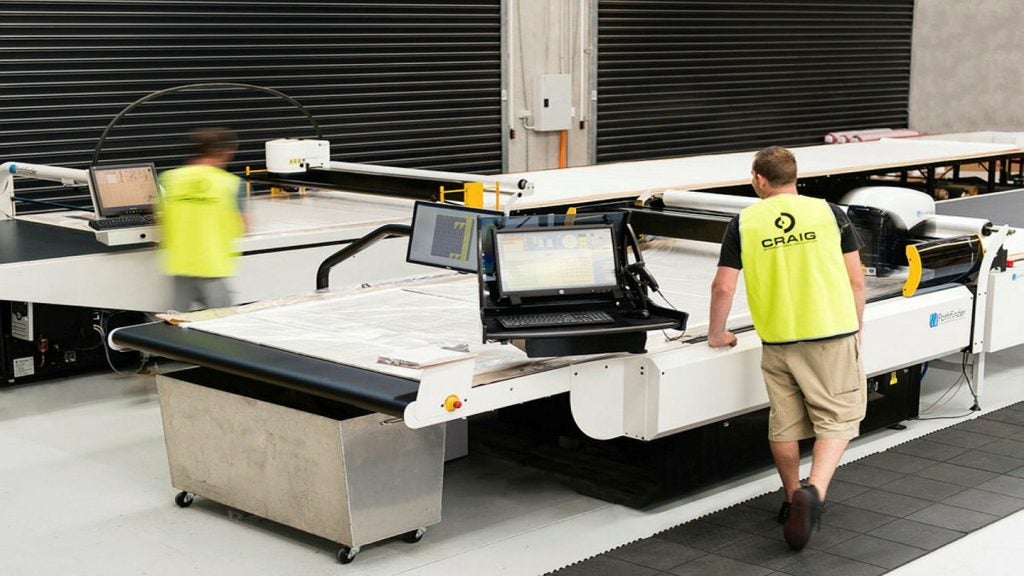
In an interview, Mikaela Green of Babcock International Group discusses the role of emerging technologies, the importance of realism in simulations, and the ongoing challenges facing the defence industry.
As the global landscape of defence continues to evolve, the imperative for training technologies has never been more pronounced. In an era of geopolitical shifts and emerging threats, the ability to effectively prepare military personnel is paramount. Against this backdrop and among others, Babcock International Group provides solutions to address the needs of defence training.
How well do you really know your competitors?
Access the most comprehensive Company Profiles on the market, powered by GlobalData. Save hours of research. Gain competitive edge.

Thank you!
Your download email will arrive shortly
Not ready to buy yet? Download a free sample
We are confident about the unique quality of our Company Profiles. However, we want you to make the most beneficial decision for your business, so we offer a free sample that you can download by submitting the below form
By GlobalDataIn an interview with Mikaela Green, Through Life Training Capability Director for Land at Babcock, we delve into the company’s vision for the future of defence training. From harnessing realism in simulations to navigating procurement challenges, Green provides insights into the industry’s trajectory and Babcock’s role.
Harry McNeil (HM): Which emergent technology areas does Babcock think will have the biggest impact on your industry in the next five years?
Mikaela Green (MG): Anything that delivers realism. I think we’ve recognised with the latest geopolitical activity that we must get realism embedded. That’s why we’ve launched Babcock’s Immersive Training Experience (BITE) at IT2EC this year. It provides that blend of realism, providing more accurate data. It’s got to deliver as close to realism as possible, whether we’re looking at the army strategy around training, train how you fight or others across the other services, or if it’s on the homefront for national resilience, being able to train exactly how you operate, I think is the key. I think that will remain.
HM: Are there any emerging technology areas that Babcock feels are overhyped regarding their potential impact?
MG: No, not overhyped, but I think it’s easy to get carried away with technology and get a bit of the magpie fever. I think we have to remember some of the basics about how we design and create training material, and that isn’t getting hung up on whether it’s a defence systems approach to training or other methodologies. However, we have to remember that the analysis method is there for a reason; we have to get better at analysing what we deploy. It’s not making bold statements about the place of simulation; we know that it brings better value to training systems, and you get a good yield when you look to replace certain live activities or other things.
HM: What are the major challenges for Babcock in the industry over the next year?
MG: Let me use the army’s mantra of “Train how you Fight” to frame my response. How do we bring the realities of live operations into training? The pace at which we can bring technology into a training setting will always be hampered by the process of putting things on to contract. Whether fixing vehicles in austere environments with sparse resources or collective training needing to deliver command responses in a multi-domain type operation, realism is key. It’s why we have made two announcements recently, our BITE product, delivering concentrated live training with synthetic injection for realism and battle inoculation, and our driver simulation R&D project with its realistic terrain, environmental conditions and pattern of life coupled with advanced real-time science-based analysis and remediation.
Defence budgets will always add a challenge to bringing in modern and novel technologies into a training system. Digitalisation and the utilisation of data-driven insight will maximise the use of existing resources and drive efficiency in the training system, enabling defence to continue to modernise.
HM: Who would you say you view as your competitors, and how do you feel Babcock is performing compared to them?
MG: Primes will always be competitors, but they will be our partners the next day. I would say that we’ve all got great things to offer. Whether you’ve viewed performance through a financial lens or another, I will always remain that I think the Babcock are the global leaders of delivering the right training at the right time with the right technologies.
HM: Is Babcock finding the current trading environment tougher or easier than this time last year?
MG: If you’d asked me 12 months before soon after the war on Ukraine commenced, I would have probably had a different view. I think war has made the focus on the importance of training and what it means for the people that have to be securing our frontline, whether on the home front or overseas. It’s important that they are as equipped and operationally ready.
HM: In training solutions, have there been any supply chain issues due to the demand for training solutions?
MG: No. Because we are a global company, we have assured global supply chains that enable us, whether it be parts and spares, software and simulation, or whether it be the use of SMEs, primes and everything in between. We have a number of exciting opportunities, which include experimentation and R&D that we are involved in. Partners and supply chain will remain key to our success.
(HM): Thank you very much. I appreciate it.







